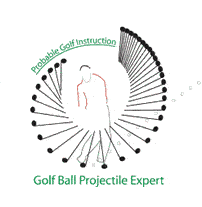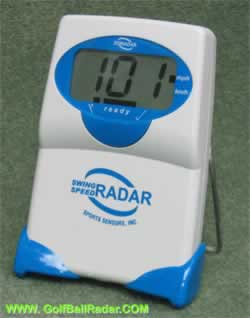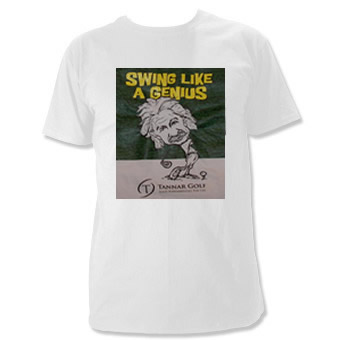
|
|
The Concept of Playing Probable GolfImagine being able to lower your score without any formal pga golf instruction or physical practice. No hitting golf balls, no practice putting green, no golf lessons. Using the principles of Probable Golf, you can do just that. All you need to do is improve in a different aspect of the game of which most are not even aware. Not to say that you can achieve your potential by focusing only on what is presented throughout this site. Of course you need to improve your golf swing and short game skills. But, with what is offered here, you can make significant improvements to your golf game. More detailed golf instruction is available through the Order Services link. Do you consider yourself to be a good golfer? Are you able to perform well under pressure? Are you ready and willing to take your game to the next level? You may have answered yes to only the last question. If you answered yes to all three, the last was probably the only one that didn’t contain a zest of enthusiasm. All of us would like to improve and take our games to the next level, but are we confident that we can? Do we have the time required to improve? What do we focus on? We need to keep in mind the 3 basic components of the game? The 3 basic components are: 1. physical skill – hitting the ball long and accurate,
having great touch around and on the greens (what’s required
is hitting lots of balls and playing lots of golf) My entire site is clearly focused on the third component. I would argue that it is that aspect of your game that you have the best chance at improving the most, and thus lowering your score, unless you have loads of time for physical practice. Learning the basics of reading the elements can be done anytime, anywhere, without a club in your hand. You’re faced with a shot on the par 3, 17th hole. The yardage is 152 yards, the green is 6 yards lower in elevation than the tee. The pin is tucked front left, guarded by water in the front, a cart path and O.B. on the left. The wind is moderate, blowing into your face but slightly to the left. You are one down in your match. What club do you select? Where do you aim? Definitely a risk reward decision. Probable Golf Instruction provides golfers with the skills to: club for elevation changes, read and club for the wind, determine based on your shot statistics the best aim for a shot, read the greens to determine the amount of break. All are based on sound fundamentals of science and mathematics. You can sign up for a very informational newsletter. They’ll help take your game to the next level. Playing golf, like any game, is a game of chance. But like any game, your performance is determined by how skillfully you play, and luck. The amount of luck influencing the outcome of a game depends on the game itself. For instance, playing a lottery such as 649, is 100% luck, although some would argue that it is possible to improve your odds. BINGO is almost all luck. Card games, such as Black Jack and Poker do involve a lot of luck but are greatly influenced in one's ability to "play the odds." Golf is a game which is most greatly influenced by the skill level of the player. Luck plays only a minor roll even though some days it does appear to be a major factor. In
order to improve at golf, one must improve one or more of the
many facets of the game. One could work on the full swing and
ball striking. One could work on the short game such as wedge
play, sand play, chipping and putting. One could focus on improving
the mental side of the game such as controlling emotions and
using visualization to improve concentration. One could also
just try to improve performance, not by improving any particular
skill level, but optimizing the odds of play. Some call this
risk management or playing the odds or playing the percentages.
I call it playing "ProbableGolf."
Every
player has his/her own strengths and weaknesses. Of course
there are the good days and the bad. The goal of playing "Probable
Golf" is to understand the odds of good play, and to know
what "risks" will more likely reward than penalize.
For instance, if a player faces a shot to a green guarded by
water, and the pin is tucked front-left, what are the odds
of being rewarded with a favourable outcome if the player aims
at the pin. What is the probability of making birdie, par,
bogey, double-bogey, or worse? Understanding one's own individual,
unique set of skills can assist in making the best choices
on every shot.
"ProbableGolf" involves
an understanding of the cause and effect relationships in golf.
By applying the principles correctly, one can improve one's
average score significantly. Some of the principles involved
in playing your best probable golf are:
1.
Recording your shot patterns round by round so you know the
percentage of times you hit the ball 5 yards short,
10 yards short, 10 yards left, etc. You can then apply the statistics to hit the best odds shot on every hole. You will realize great savings in strokes. 2. Learning how to read greens correctly through plumb bobbing. Some claim that the plumb bob cannot be applied to reading greens. I have applied the physics and mathematics of a sloped putt to come up with a fairly simple method of plumb bobbing effectively. It has been well established that most putts are greatly under-read, even by professionals. My plumb bobbing method confirms this and quantifies how much break each putt has, no matter its length. 3. Most players find elevation changes difficult to club correctly. For most it is a guessing game; they select a club by using the experience of previous attempts, but very rarely do they hit the shot because of doubt. I have worked out the physics and mathematics to determine how many more or less yards the shot plays with an elevation change, no matter how great. You will begin to hit the right clubs for each shot and be more confident with your club selection. 4. Another guessing game with club selection is the effect of the wind. I can provide you with a very simple method to determine the wind speed and then determine how much longer or shorter the shot will be due to the wind. No special equipment needed. 5. Ever wonder how the air temperature, humidity and air pressure effect how far you hit the ball? You have probably noticed differences but have found it very difficult to judge just how much. On cold, wet days you need to hit more club, but how much more? On scorching, hot days you need to hit less club, but how much less? The physics of golf ball flight is now fairly well understood. Because of the computer, we can model the flight quite accurately and thus determine the effects of changes in atmospheric conditions. It can tell you how much of a change occurs, so there is less guessing involved. You can go out at the beginning of a round knowing whether you need to hit a half club more or a full club more. 6. You probably have heard that the short game is the most important, whether you are a professional or 25 handicap amateur. So why do you continue to spend more time beating balls than practicing chipping, putting and other facets of the short game. I would suggest that its not just because you'd rather hit balls and that you hate practicing the short game. I would suggest that deep down, you haven't really been convinced. I think I can convince you by demonstrating, through some statistics, how you can greatly improve you score by improving your short game by only 10% while improving your long game by 40% won't make as much of an improvement. ©Probable Golf Instruction, Ken Tannar 2001-2015. All Rights Reserved. Langley, B.C. V2Y 2G4 CanadaPhone: 604-309-7030 FAX: to fax, email an attachment probablegolf@yahoo.ca or golfexpert@probablegolfinstruction.com |
| GOLF ASSISTANTS |
|
Golf Trip Pairing CalculatorPlanning a golf trip with some friends/family? Trying to sort out the foursomes so people don't play too often with others? Order your ready made Spreadsheet. Type in the names, print out the groupings. Minimize repeat pairings.
Wind Caddy will advise you on aim, distance and club so that you can play the wind successfully. It takes the guess work out of club selection. New option to enter custom distances for each club. The algorithm will make a club suggestion accordingly. Use the right club in every condition!
|
|
|
| GOLF NEWS |
Golf Putting Green Reading Glasses |
| GOLF NEWSLETTER |
Statistics
·Putting
·Longest Golf Balls
·Games
·Handicap
·Scoring
·Shot Patterns
·Tournaments
·PGA Tour Stats
Pro Shop
·Ball Marker Engraved
·Books
·CDs & DVDs
·Green Reader
·Impact Labels
·Laser Rangefinder
·Longer Drives
·Products
·Teaching Aids
|
|
| GOLF POLL |
The 19th Hole
·Advertising
·Ask the Golf Expert
·Consultation/Litigation
·FAQs
·Golf Blog
·Golf Draws
·Links
·Science of Golf
·Tell a Friend
·Testimonials
·

Golf Ball Finder Glasses
Find all your errant golf balls and many more!
| GOLF TIPS |
How to play:
|




